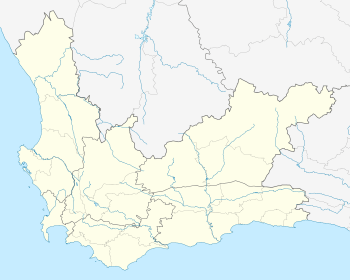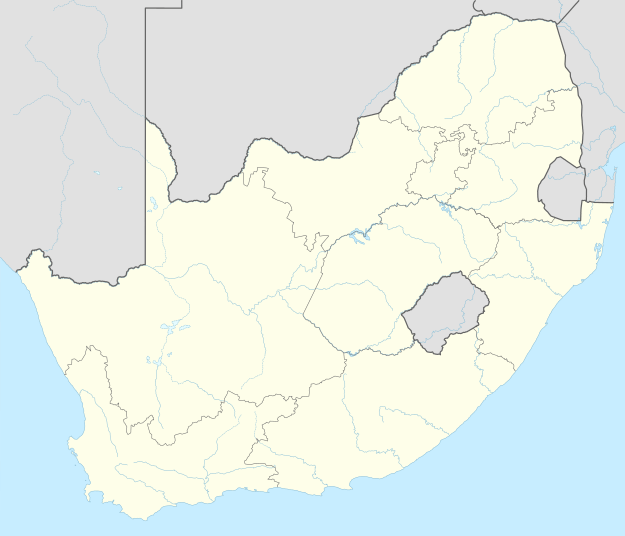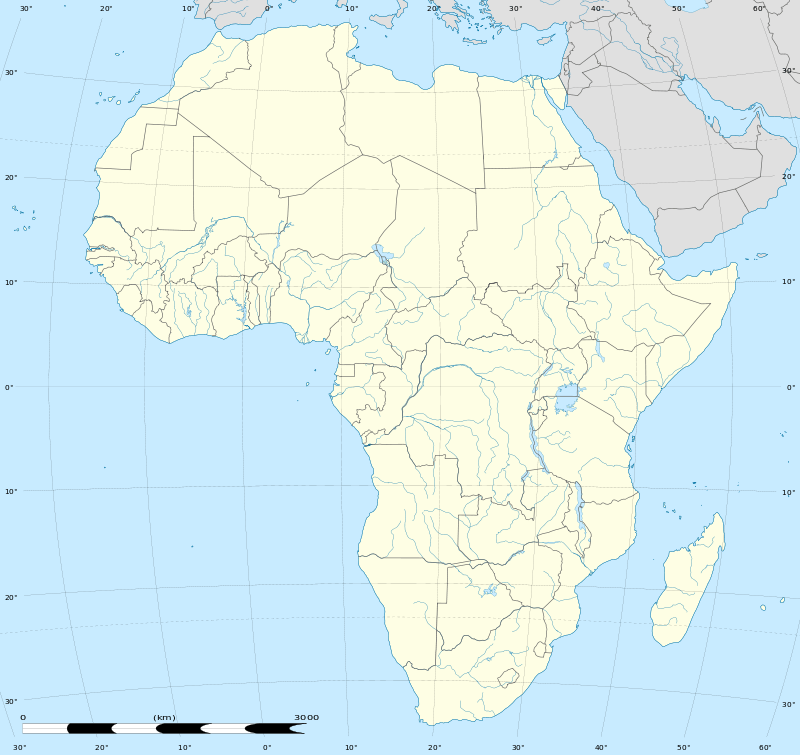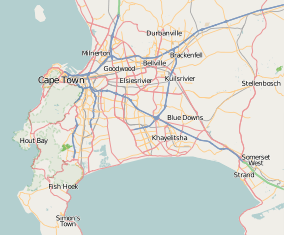Macassar, Western Cape
| Macassar | |
|---|---|
 Macassar  Macassar  Macassar
| |
|
Location within Cape Town  Macassar | |
| Coordinates: 34°04′S 18°46′E / 34.067°S 18.767°ECoordinates: 34°04′S 18°46′E / 34.067°S 18.767°E | |
| Country | South Africa |
| Province | Western Cape |
| Municipality | City of Cape Town |
| Established | 1694 |
| Area[1] | |
| • Total | 28.85 km2 (11.14 sq mi) |
| Elevation | 4 m (13 ft) |
| Population (2011)[1] | |
| • Total | 33,225 |
| • Density | 1,200/km2 (3,000/sq mi) |
| Racial makeup (2011)[1] | |
| • Black African | 8.9% |
| • Coloured | 88.3% |
| • Indian/Asian | 0.5% |
| • White | 1.2% |
| • Other | 1.1% |
| First languages (2011)[1] | |
| • Afrikaans | 85.2% |
| • English | 7.5% |
| • Xhosa | 5.0% |
| • Other | 2.4% |
| Postal code (street) | 7130 |
| PO box | 7134 |
Macassar is a small town in South Africa, close to Strand and Somerset West, with an approximate population of 33,225.
Macassar’s history is closely tied to the Strand as it is from here that its first inhabitants came. The kramat (shrine) of Sheikh Yusuf (Tuanta Salamaka) of Sultanate of Gowa, in what is today Makassar in Indonesia, is one of the South African Muslim community's holiest places. The Sheikh, who was exiled by the Dutch in 1694, came to the strand area and made it his final resting place although his followers, who were mainly fishermen, found the sea of Macassar rather uninviting and moved further along the coast to Strand’s Mosterds Bay. After the death of Sheikh Yusuf, the followers named the place after his place of born with different spelling of c instead of k.
The Macassar Dunes Nature Reserve, in Baden Powell Drive, forms part of the vital coastal dune system, one of the biodiversity hotspots of the Western Cape. These dunes have been under enormous threat from conflicting activities, including cattle grazing and 4X4 vehicle use.
Macassar is a predominantly coloured area close to the Macassar Dunes, whose population historically work in the fishing and boatmaking industry. Unlike its neighbour Mitchells Plain, it is not ravaged by crime and drug abuse which is so prevalent amongst other underprivileged communities in the Western Cape.
See also
References
- 1 2 3 4 "Main Place Macassar". Census 2011.
.svg.png)